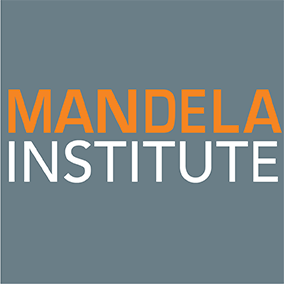Individual Labour Law Practice
Application Form
Complete Online Application Form at
/zahrah/display/external/public/163/AabSAeQlpQ#section-intro
Apply By
There are two registration periods:
1st Semester - 4 September 2023 to 31 December 2023
2nd Semester - 4 March 2024 to 31 May 2024
Cost
R13,900.00
Duration & Format
This is a block release course where participants attend daily lectures from 08:30 to 16:30 during the period 9 to 16 March 2024. It will also be offered during the period 29 June to 6 July 2024. Courses might be delivered through blended learning. Students are required to have basic computer skills and stable internet connection.
Overview
The Individual Labour Law Practice postgraduate certificate course examines individual Labour Law rights in South Africa. To this end it focuses on common law contractual rights, the Constitution of the Republic of South Africa, 1996 (‘the Constitution’) and statutory protection in terms of the Labour Relations Act 66 of 1995, the Basic Conditions of Employment Act 75 of 1997, the Employment Equity Act 55 of 1998, the Skills Development Act 97 of 1998 and the Occupational Health and Safety Act 85 of 1993. This course can be taken on its own or as part of the Labour Dispute Resolution practice certificate course.
Course Outcomes
At the end of the course participants should be able to:
- Discuss the history of the struggle for individual Labour Law rights and its provisions in the Constitution
- Explain the various sources of Labour Law
- Define and discuss the scope of basic rights and duties arising from the Labour Relations Act
- Identify who an employee is
- Appraise and distinguish key provisions and rights arising from the Basic conditions of Employment Act and the Skills Development Act
- Appraise and distinguish the concept of employment equity and key provisions pertaining to affirmative action and unfair discrimination
- Assess and evaluate the meaning of dismissal and the procedural and substantive requirements that need to be satisfied when dismissing an employee for misconduct, incapacity or operational requirements
- Discuss, analyse and evaluate what an unfair labour practice is
- Discuss, analyse and evaluate what an automatically unfair dismissal is
- Distinguish between the relevant remedies that are available to an employee who has been unfairly dismissed, and
- Discuss, analyse and evaluate the dispute resolution process applicable in individual Labour Law disputes.
Course Content
The course consists of the following modules:
- Introduction to the systems and structures of Labour Law (including jurisdictional issues)
- Distinguishing between individual & collective Labour Law
- Individual Labour Law and the global context, individual Labour Law and the Constitution
- Sources of Labour Law
- The meaning of employee
- The labour broker relationship
- The meaning of dismissal, substantive and procedural fairness in unfair dismissal disputes
- Dismissals on the basis of misconduct, incapacity and operational requirements
- Automatic unfair dismissals
- Distinguishing between misconduct, incapacity and operational requirements (including remedies and procedure)
- Pre-dismissal arbitrations
- Unfair labour practices
- Dispute resolution processes in individual Labour Law disputes;
- Individual employment rights and obligations arising from the Basic Conditions of Employment Act
- Employment equity, affirmative action and unfair discrimination, and
- The Skills Development Act.
Target Audience
Labour lawyers, HR managers, and legal professionals specialising in individual labour issues.
Application Process
A relevant Bachelor of Laws or Bachelor of Commerce in Law or Bachelor of Arts in Law or equivalent qualification is a prerequisite for admission to the postgraduate certificate courses; OR
Applicants interested in applying to study Labour Dispute Resolution Practice who have any other undergraduate qualifications outside the field of law or labour work experience must complete the free compulsory skills development course Foundations of Commercial Law Practice.
Kindly note that basic computer literacy skills are compulsory for all courses.
You will be required to submit:
- Certified copies of Qualifications and Academic Records
- Certified copy of Identity Document or Passport.
- A detailed Curriculum Vitae
Kindly note that all foreign qualifications must be submitted with a SAQA Evaluation Letter.
Additional Information
The following certificates can be obtained:
- Certificate of Competence: To obtain a certificate of competence, students are required to attend and participate in 75% of the lectures and to complete the assessments as required in the course.
- Please note that a Certificate of Attendance is not available for this course
This postgraduate certificate course is accredited by the university in accordance with its statutory mandate. It does not lead to a qualification registered on the National Qualifications Framework
Enquiries
Mahlatse Masemola Tel No: +27 11 717 8438; Email mahlatse.masemola@wits.ac.za
Ursula Dillner-Dangor Tel No: +27 11 717 8435; Email: ursula.dillner-dangor@wits.ac.za
Website www.wits.ac.za/mandelainstitute/short-courses/

